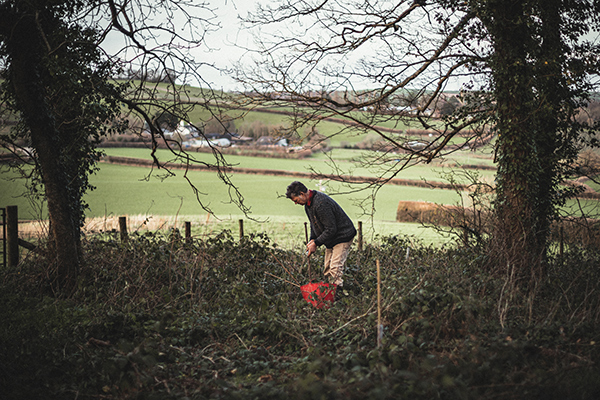The EU’s Common Agricultural Policy was an expensive, unfair, 40-year-long environmental and social disaster. By 2016, £3 billion of taxpayers’ money went into UK landowners’ pockets every year; some repaid us by polluting our food and water, and annihilating our wildlife. Surely we would do better on our own, with a policy tailored to our own needs, free from the shackles of Brussels?
Few would contest the logic of Michael Gove’s “public money for public goods” (the idea behind the Agriculture Act 2020, proposing to pay farmers for environmental benefits). But over five years post-Brexit, all that has emerged from Defra are vague statements of intent.
Crucially, we are no closer to an agreed method of measuring those “public goods”; what is the monetary value of a kg of carbon, a bee or an earthworm? While the Public Accounts Committee last week condemned Defra’s policy (or lack of it) as “blind optimism”, farmers quietly wait.

Competence is boring; it rarely receives the recognition it deserves. Instead, we lurch from headline to headline in a stream of rhetoric. “Taking back control”; “getting Brexit done”; “public money for public goods”; all emotionally engaging, but in practical terms useless.
Good governance takes rigorous research, attention to detail, impartial analysis, and competent implementation; a good slogan may well help people accept new policies, but is no substitute for the unseen hard work. Neither will the answers be found in a neoliberal marketplace for trading carbon credits or biodiversity offsets, which some hope will plug the funding gap for farmers.
Even the most dogmatic market fundamentalists would acknowledge that such markets require clear definition and governance to work; something we are no closer to now than in 2016. Several like-minded but commercially constrained farmers have recently told me that they are actually delaying tree-planting due to fears that they will either miss out on the yet-to-be-defined Defra funding (historically, Defra only pays for what it can claim its funding initiated), or will not be able to sell carbon credits for projects already started (for carbon reductions to be saleable, they must be “above business as usual”).
The unintended consequence of such incompetent governance is currently to delay the “public goods” that are widely called for, and that our farmers, food, economy and planet urgently need.















Well said, Guy. The more I hear from you, the more I wish that you were running the country.
I couldn’t agree more … Guy for Prime Minister!
A good article, thank you Guy.
I’m afraid I have little faith that our politicians have the will or indeed the knowledge and understanding of farming to implement a policy here. In any event I fear what comes about, while workable for large farm estates, will not be for the smaller farmer – but it is they who need supporting most!
Farmers need some certainty to plan and they need it soon.
I think you’re right about the smaller farms, still no sign about support for farms under 5ha. Seems a shame when there are obvious synergies with health policy – we need to grow and eat more veg yet the government offers little support.
As a former farmer (wild guess from your name), what do you make of the proposals? Would you consider re-wilding?
Hi Jack, I think re-wilding is a good idea in principle but will this provide sufficient income / cash flow for the smaller farmer (and by smaller I mean less than c200 acres). It’s a complex area and I don’t envy the policy makers, having to take account of different types of farming and topography to try and produce legislation that works for all.
Supermarkets gave a huge role to play here too in supporting British farmers with fair pricing to allow investment. And of course we should all support our local farmers by buying direct where possible – cheers
I’ve also wondered, are farmers even interested in re-wilding? Defra can incentivise it all you want but if farmers don’t have an interest or passion in it, it doesn’t mean an awful lot. But I guess if there are no more direct payments you might have no choice in the matter.
This delay tactic is exactly the situation we find ourselves in. Admittedly we are only tiny (54 acres) however we are trying to use our small plot to document and encourage others both large and small.
Hi richc,
Are you delaying a tree planting initiative as well? And what are you trying to document exactly?
Best, Jack
We’re delaying tree planting and waiting to see what incentives may be applicable when the dust settles. We’re documenting our entire journey from buying the land through woodland management, ‘rewilding’ the adjoining pastures, taking baseline wildlife and plant surveys etc etc.
So by the sounds of it, the farm is a recent project? How is the delay impacting you in terms of cracking on with progress? Also interested in your approach to weaving food production with re-wilding?
Hi richc,
I’d be really interested in talking a bit more about your farm and project. If you’re happy to chat, feel free to send me an email at jackthompson@riverford.co.uk
Thanks, Jack (Staff writer for Wicked Leeks)